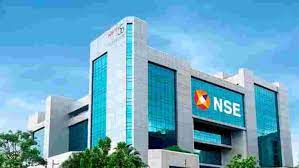The National Stock Exchange of India, NSE become the world’s largest derivatives exchange . In 2022, the daily average turnover of the exchange reached Rs 470 crores. This is the fourth consecutive time, NSE is holding this position. Apart from the derivatives, the exchange was ranked third in equities. The positions and data are based on the statistics presented by the World Federation of Exchanges.

Table of Contents
What is the NSE?
The National Stock Exchange of India, commonly known as the NSE, is the leading stock exchange in India. It was established in 1992 and has since become the preferred choice for investors and traders in the country. In this article, we will discuss the various aspects of the NSE and how it operates.
The NSE is a leading stock exchange in India that provides a platform for trading in equities, futures and options, currencies, and exchange-traded funds (ETFs). It is a technology-driven exchange that operates on a fully automated trading system, providing investors with a seamless trading experience.
The NSE is headquartered in Mumbai and has offices in several other cities in India. It is regulated by the Securities and Exchange Board of India (SEBI), which ensures that the exchange operates in a fair and transparent manner.
How does the NSE operate?
The NSE operates on a fully automated trading system called NEAT (National Exchange for Automated Trading). NEAT is a state-of-the-art trading platform that allows investors to place orders and execute trades from anywhere in the world.
The exchange operates on a market maker system, where market makers provide liquidity by buying and selling securities. Market makers are entities that are registered with the exchange and have the ability to quote both buy and sell prices for a particular security.
The NSE operates on a T+2 settlement cycle, which means that trades executed on the exchange are settled two working days after the trade date.
What are the products traded on the NSE?
The NSE offers a wide range of products for trading, including equities, futures and options, currencies, and ETFs. The equity segment of the NSE is the largest, with more than 1,600 companies listed on the exchange. The futures and options segment is also very popular, with a wide range of derivative products available for trading.
The currency segment of the NSE allows investors to trade in currency futures and options, while the ETF segment offers a wide range of exchange-traded funds for investors to choose from.
What are the benefits of trading on the NSE?
There are several benefits of trading on the NSE, including:
- Robust trading platform: The NSE operates on a state-of-the-art trading platform that provides investors with a seamless trading experience.
- High liquidity: The NSE is the leading stock exchange in India and has a large number of market makers, which ensures high liquidity for the securities traded on the exchange.
- Transparency: The NSE operates in a transparent manner and provides investors with access to real-time market data, allowing them to make informed investment decisions.
- Regulatory oversight: The NSE is regulated by SEBI, which ensures that the exchange operates in a fair and transparent manner.
Comparison of NSE with BSE
| Criteria | National Stock Exchange (NSE) | Bombay Stock Exchange (BSE) |
|---|---|---|
| Establishment | 1992 | 1875 |
| Location | Mumbai | Mumbai |
| Trading Hours | 9:15 AM to 3:30 PM | 9:15 AM to 3:30 PM |
| Index | Nifty 50, Nifty Bank, etc. | Sensex, BSE 100, etc. |
| Market Capitalization | Larger (as of 2021) | Smaller (as of 2021) |
| Ownership | Public | Public |
| Technology | Highly automated with electronic trading systems | Also automated with electronic trading systems |
| No. of listed companies | More than 2,000 | More than 5,500 |
| Investor profile | Institutional investors, retail investors | Institutional investors, retail investors |
| Regulatory authority | Securities and Exchange Board of India (SEBI) | Securities and Exchange Board of India (SEBI) |
| Trading platform | NSE trading platform is called “NEAT” (National Exchange for Automated Trading) | BSE trading platform is called “BOLT” (BSE On Line Trading) |
The National Stock Exchange of India is the leading stock exchange in India and offers a wide range of products for trading. It operates on a state-of-the-art trading platform and provides investors with a seamless trading experience. The NSE is regulated by SEBI, which ensures that the exchange operates in a fair and transparent manner. Overall, the NSE is a preferred choice for investors and traders in India.